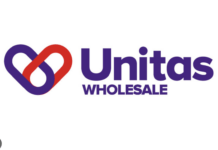Elit Rowland reveals how wholesalers are investing in technology to improve service and sales.
In the past few months, wholesalers small and large have been using technology to make shopping easier and more enjoyable for shoppers. From beacon technology to transactional apps and virtual assistants, technology is helping wholesalers to improve service and sales, and to stand out from the crowd. In this feature, we round-up of some of the latest innovations going on across the cash & carry and delivered wholesale channels.
JW Filshill: Digital vouchers and EPoS
Digital vouchers are an effective way to engage with customers using technology. They have proved particularly popular in restaurants, with the likes of Pizza Express capturing the details of millions of consumers by offering digital discount codes in exchange for email addresses and telephone numbers.
Glasgow-based delivered wholesaler JW Filshill applied this concept to its own digital voucher scheme, which enables retail customers to offer their shoppers discount vouchers.
“80% of people who requested a voucher used it,” says managing director Simon Hannah, who has used the data captured to build tailored marketing campaigns and a pattern of knowledge around what certain mobile numbers typically redeem. The campaign was so successful that Filshill has agreed 200 more schemes with suppliers.
Bestway: Beacon technology
In the previous issue of Better Wholesaling, Bestway revealed that it was involved in a beacon project designed to help customers to navigate around the depot and to alert them to additional information and deals. The technology is part of a project developed by mobile applications company RNF Digital Innovation whereby shoppers will be able to use an intelligent, location-sensitive app that tracks their shopping trip and combines previous shopping behaviour with information about the stores they are visiting.
The technology has recently been adopted by House of Fraser in Aberdeen. Beacons have been placed in mannequins that send alerts to consumers within 50m about what the mannequins are wearing and where they can be found in the store.
Beacon technology is rapidly gaining momentum in many areas of retail, but there are questions about how prepared consumers will be to download more than just a small selection of apps.
Imperial Cash & Carry: NFC tags
Not everyone is ready for beacon technology and some wholesalers have already been supplying additional information to customers using smartphones.
North London’s Imperial Cash & Carry specialises in beers, wines and spirits, and recently introduced NFC (near-field communications) tags at strategic points around its depot. These are small devices that can be programmed with information and then placed into a product to let shoppers read them with a smartphone or any other NFC-enabled device.
“Customers just need to tap their smarphones on a product – say a bottle of wine – and a web page will pop up offering them information on tasting notes, serving suggestions or how to pair the wine with food,” says Nikkita Mulchandani, marketing and retail club manager at Imperial.
Crown Cash & Carry: Your Letter Box
Coming up with digital services that can help support retail customers is another area that is being well used by innovative wholesalers. Reading-based Crown Cash & Carry has just launched Your Letter Box, a service that enables large clothing retailers such as M&S to sell and pick up items locally. Consumers can order the items online and have them delivered to a convenient location where they can try on the items. Retail customers are invited to install 2mx2m booths
in their stores for this purpose. If an item doesn’t fit a shopper, they can leave it in the booth and the clothing retailer will pick it up.
The initiative, which was announced at the Today’s Group conference in Rome earlier this year and was recently showcased at Crown’s trade day in September, is expected to generate revenue for retailers who will ‘rent’ the space to larger retailers. It will also help to drive extra footfall and incremental sales when consumers go in to collect their orders.
JJ Food Service: FOODit table reservation service
Foodservice specialists have also caught on to the importance of supporting customers with technology, which is why JJ Food Service last year launched FOODit, a web-building service that puts independent restaurants and takeaways online in around five days, while optimising their visibility on
Google and Bing searches.
Last month, FOODit added a table-reservation service to further support its independent customers and save money for the consumer. “At the moment, people can pay up to £2 per head to reserve tables online. That can end up being quite expensive when you make a group booking,” explains FOODit’s managing director Rif Kiamil.
The new service is offered as a complimentary part of FOODit’s web-building package, which was recently promoted at an entry-level price of £83 to make it more affordable for restaurants to go online.
Dhamecha: The virtual assistant
London cash & carry giant Dhamecha was recently chosen by Coca-Cola Enterprises (CCE) to trial a virtual assistant in each of its depots as part of the ‘Share a Coke’ marketing campaign. The virtual assistant would appear in each of Dhamecha’s depots and would give customers details and updates on the campaign.
While the initiative was an industry-first and created good in-depot theatre, Today’s Group member Dhamecha warned that wholesalers should be careful not to introduce technology too quickly for customers.
“The digital assistant did generate a lot of interest but some retailers like things to be simple – a straightforward good deal. Too much technology could put customers off,” says trading director Mukesh Vithali.
Dhamecha’s biggest technology investment this year has been in the development of a new transactional website, which will be operational by the end of the year.







